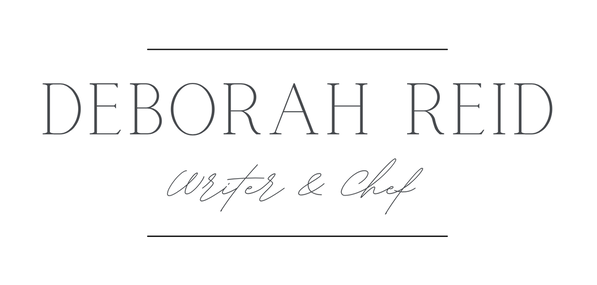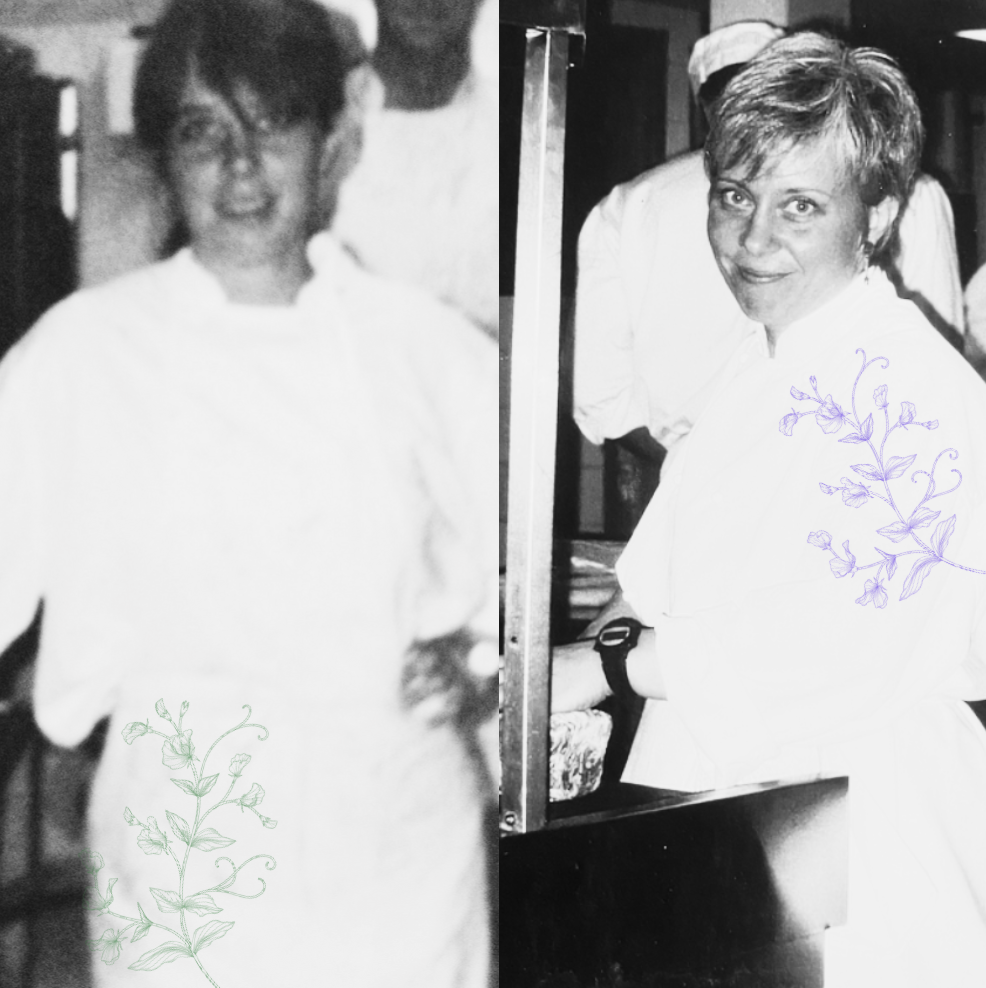|
What apprenticeship taught me is there's beauty in progress. It began in 1986 and lasted about 14 years. A bit long, but I was a woman in a still mostly man's world. Working in French kitchens at the top of the business. It was highly competitive. When I returned from the River Cafe in 2000, I knew I'd graduated. My skills are stellar, and my knowledge of French culinary history spans decades. In case you didn't know that about me. *** French cooking has been like a good lover. I sacrificed for it — long term-partnership and children. I never had strong feelings about the latter, which doesn't mean I don't like kids. I do. Some a whole lot. Do you know the feeling of falling in love with your career? That's what happened. I did something men were allowed to do. My singleness of purpose got in the way of developing some personal partnerships. What to do with a woman who wants so much for herself? So it's been a solo journey. And plenty of it has been wonderful. *** The night André Donnet slipped a pan-fried sweetbread to me — butter froth residue on its surface. The gesture was nurturing. Without missing a beat, it was in my mouth. I shot to heaven and came back, just like that. Nothing was the same after. On Queen Street West in the late 80s, killing lobsters at Le Bistingo. The horror. Nothing felt humane about it. Ingredients flown in weekly from Brittany. What is the name of the supplier? He made deliveries Thursdays in Toronto and had a small white truck. He'd come through the swinging kitchen doors with wooden crates of Fine de Claire oysters, samphire, and Valrhona chocolate for sorbet. Claude's sea scallops à la nage — shedding silken tears at the thought — and the tarte fine aux pommes with Calvados sabayon. I got an advanced diploma in whisking that year. Claude's career was peaking, and his personal life was tanking. The things I understand now. Fast forward to killing so many lobsters at Rundles. I'm certain retribution of some sort is inevitable in the afterlife. I've eaten in enough Michelin Two- and Three-Star restaurants to say it was Two-Star. Hands down, perfect. Where I spent a formative five years of my life. Worked every station. I want to eat a boozy sherry trifle, put a walnut drop on my tongue and let it melt, and snap a jewelled florentine in two. Neil Baxter trained as a pastry chef. I still use his recipes — you can't imagine how hard I worked for them. His talent was not limited to sweets. There were pommes boulangèr, rabbit sausage, and, oh my god, the sauces. He was not an amateur electrician. I returned from a Sunday afternoon break once, put my hands on the proofer while preparing to bake sourdough rolls, and got a shock that scared us both. Neil had been doing some tinkering while I was out. His laughter broke the silence. I wondered if it was intentional. If you worked at Rundles, you'd understand. Ann Marie Moss and I once had a competition to see how many crème brûlée we could eat in one go. It must have been late summer to run with that crazy idea — probably during an after-theatre shift on a Saturday at the end of August. All of us punch drunk. I can still see the two of us laughing. Wearing our kitchen dresses — like Upstairs Downstairs. I think we made it to three each. And then Bryan Steele, graduate studies in being a good human and cooking like a master. Our family meals were off the charts. Bryan would braise rabbit with green olives and tend a pot of polenta like he was cooking for his nonna. I admired that spirit in him. I'd wear the gears on the blender emulsifying extra virgin olive oil into tomato sauce, channelling Marcella Hazan. I hope the thought of that pasta brings a smile to some of your faces. We ate at a picnic table under an umbrella, beside a koi pond, in the Prune's glorious garden — the loving work of Eleanor Kane and David Scott. *** Study was a part of a traditional European apprenticeship and my stages were world-class — in a Michelin Two-Star restaurant on the Côte d'Azur and with Lydia Shire, Ruth Rogers and Rose Gray. The careers of all four chefs were peaking. Gault & Millau had just crowned Jacques Chibois, France's chef of the year. Catherine Deneuve ate in the restaurant opening night of the Festival de Cannes. Her mirrored Rolls Royce at the hotel entrance — glittering like a diamond with each camera flash. Stages were always international, lasted six weeks, and were financially sponsored by the restaurants I worked for in Canada. It did not require a year of my life or wealthy parents (all good things). And there were not more than two or three stagiaires in the kitchens I visited. A stagiaire should come away with a sense of a chef's singular approach. There was an application process — formal letters were sent by mail. Staging is culinary diplomacy — creating goodwill between restaurants. It's an investment in a developing cook and a reward for loyalty and hard work. The thrill of working with women whose work I adored. I hope you know that feeling. My anticipation walking the footpath from Hammersmith station to the River Cafe along the Thames the first morning. An imprint. All of it. *** I've been thinking of getting a tattoo. Something to honour the experience. But where to begin? Also, this turned up in my Instagram stories this week. It's hilarious. Is it a sign? *** The pressing question is how to write about the hard stuff. My apprenticeship was real — not a fairy tale. There are things about me and others that might need to see the light of day. What's helpful is talking to friends. People whose opinion I want to consider. One of them sent me a note yesterday morning — the thing I needed to hear. Going it alone holds no appeal. I've been brave up to this point. And am currently working up more courage. *** The photos: Left: Twenty-five-year-old me in the kitchen of L'Escargot. Hand on my hip — heart beating mad fast. Right: At a Stratford Chefs School gala in the basement of Centro restaurant. I was training for my first marathon at the time. I can't remember who took the photo, but they captured some of my spirit. *** How big, how blue, how (beautiful) How big, how blue, how (beautiful) How big, how blue, how So much time on the other side Waiting for you to wake up So much time on the other side Waiting for you to wake up Maybe I'll see you in another life If this one wasn't enough So much time on the other side 2015Comments are closed.
|
Archives
July 2024
© Deborah Reid, 2021 - 2024. All Rights Reserved. Categories |



 RSS Feed
RSS Feed